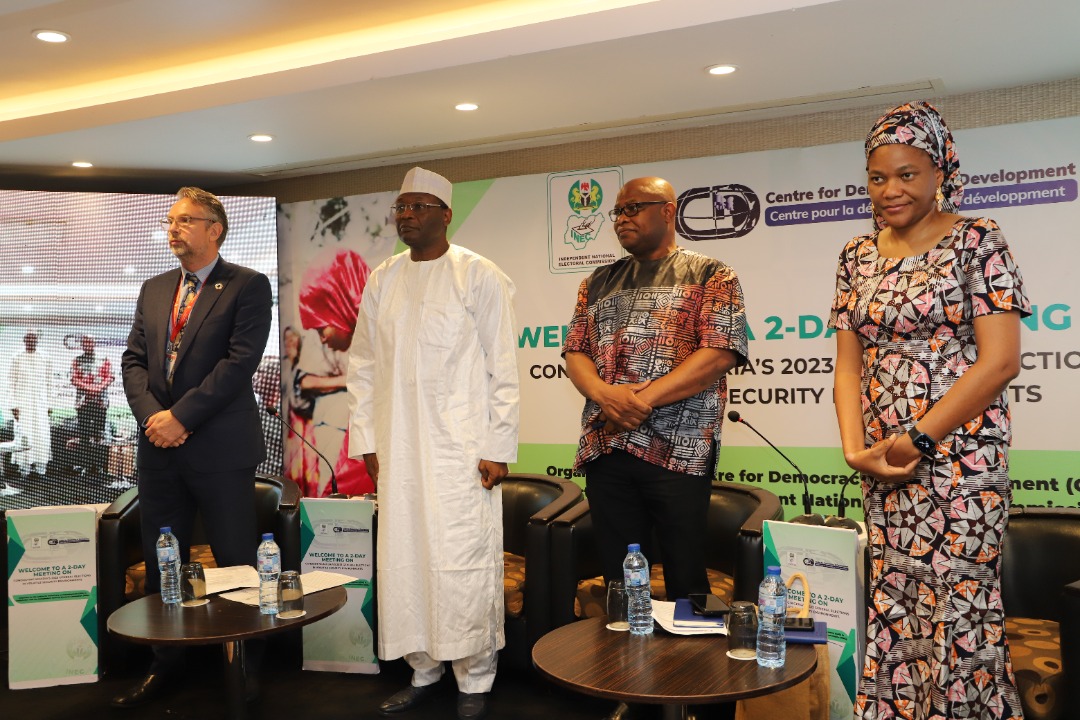…Commends MacArthur Foundation For Supporting Citizen Enlightenment
By Armsfree Ajanaku
The Executive Director of frontline civil society organization, the Resource Centre for Human Rights & Civic Education (CHRICED), Comrade Dr. Ibrahim M. Zikirullahi has called on Nigerians to consistently make accountability demands from those saddled with the responsibility of providing social goods and services.
He said despite the challenge posed by public officials who are always dodging accountability by denial of information on public expenditures, Nigerians must keep up the pressure. Represented by the organisation’s Senior Programmes Officer, Dr. Omoniyi Adewoye, the CHRICED helmsman said citizens should stop being onlookers when constituency projects are being designed and initiated.
He stressed that instead of being passive, citizens should participate in all social goods and service delivery processes to ensure they are transparent enough to produce the right outcomes. The CHRICED helmsman gave the charge while briefing journalists on the outcome of its project titled; Community-Driven Anti-Corruption Initiatives in Kano State.
The goal of the project, he noted, is to reduce corruption in the constituency projects delivery process through citizen activism. Describing the importance of engaging citizens at the grassroots to tackle corruption, Dr. Ibrahim informed that since the project was launched, communities across the 44 Local Government Areas of Kano State have been reached through the project’s diverse set of activities.
Dr. Ibrahim reserved words of commendation for Community-Based Organizations in Kano State, which have been deploying accountability tools like the Freedom of Information Act to demand accountability from legislators regarding government expenditure on constituency projects in their communities. However, the CHRICED helmsman lamented that access to critical public information, especially those related to public expenditures still remains a herculean task. This situation he noted was due to some obstacles and constraints deliberately put in place by public officials to undermine the people’s right to public information and data.
He said: “In the course of this intervention, CHRICED project team and community stakeholders have encountered instances where some politicians and public office holders who remain inaccessible and unwilling to make themselves available for accountability inquiries. It is pertinent to note that officials who behave in this way, run afoul of the provisions of Section 15 (5) of Nigeria’s 1999 Constitution as amended, which makes it clear that the “State shall abolish all corrupt practices and abuse of power.”

Notwithstanding these realities, CHRICED urged citizens to remain undaunted in the struggle to ensure public resources get to the people at the grassroots. “As we continue to engage these categories of stakeholders through advocacies and dialogues, we hope to surmount these challenges by securing their buy-in and support. In the light of these challenges, we therefore call on Kano citizens, the media, Civil Society Organizations, Community Based Organizations and other critical stakeholders to rise up to the occasion and ensure that there is a high level of transparency and accountability in the constituency project value chain in Kano State. This will be achieved if citizens collectively put pressure on politicians and public officials to live up to their responsibilities as duty bearers.”
CHRICED also reserved words of commendation for the John D. and Catherine T. MacArthur Foundation, which it noted has shown strong commitment to building a just and equitable world. This commitment Dr. Ibrahim noted, has seen the Chicago-based Foundation support worthy causes that promote the rights, welfare, and well-being of people across the world. CHRICED also expressed its appreciation to the Independent Corrupt Practices and Other Related Offences Commission (ICPC), The Economic and Financial Crimes Commission (EFCC) and The Kano State Public Complaints and Anti-Corruption Commission (PCACC) for their support, which the group noted, helped achieve the outcomes recorded so far.




















